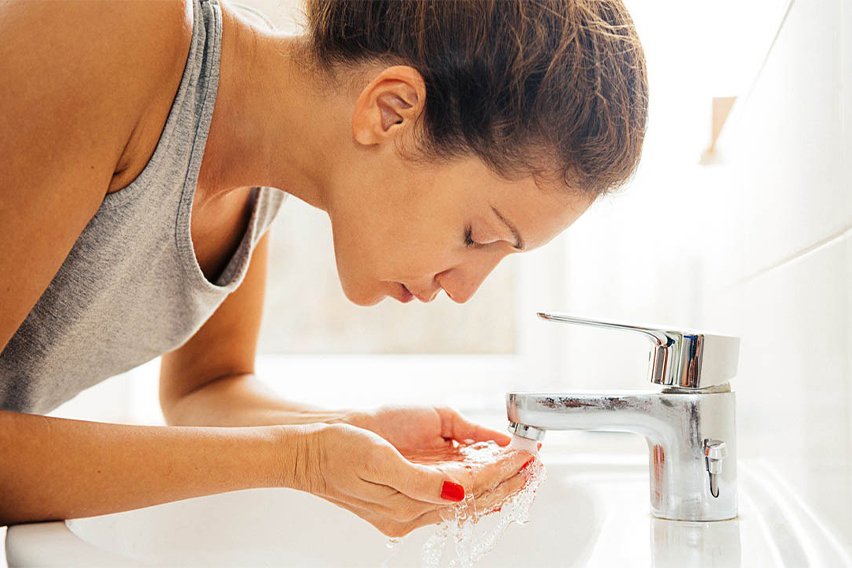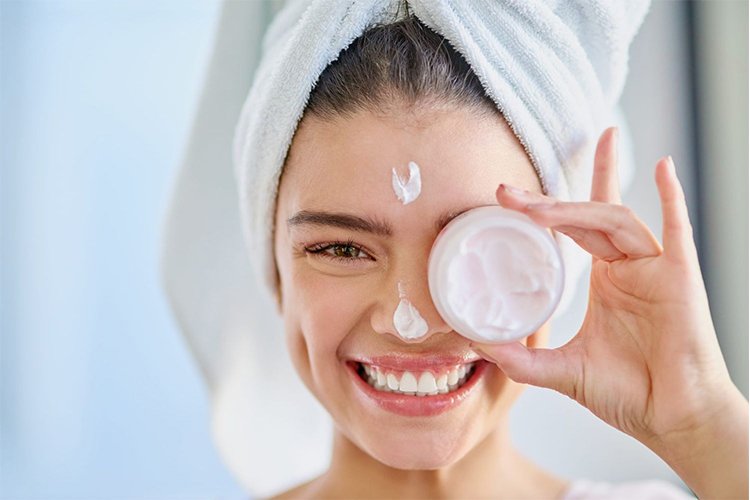
In the quest for healthy, glowing skin, a solid skincare routine is your most reliable ally. Understanding the basics of skin care isn’t just about achieving a flawless complexion; It’s a commitment to self-care that promotes long-term skin health. In this blog, we explore the essential elements of a comprehensive skin care routine and demystify the steps and products that form the basis of a regimen tailored to your individual skin needs.
The path to glowing skin begins with a deep understanding of your skin type. Is your skin oily, dry, combination or sensitive? Knowing your skin type will help you choose products specifically tailored to your skin’s individual needs. Take time to assess how your skin reacts to different conditions and products, as this knowledge is the cornerstone of an effective skin care routine.

Cleansing is the first and most important step of any skin care routine. This important step removes dirt, makeup and impurities that build up on your skin throughout the day. Choose a gentle cleanser that is suitable for your skin type. For oily skin, a foaming cleanser can help control excess oil, while those with dry or sensitive skin may opt for a hydrating, non-stripping formula.
Exfoliation is a key component to maintaining healthy skin. This step removes dead skin cells, promotes cell renewal and reveals a fresh, radiant complexion. Depending on your skin type, you will either use physical peels (gentle peels) or chemical peels (products with ingredients like alpha or beta hydroxy acids). Be careful not to over-exfoliate as this can cause irritation and sensitivity.

Toning is often underestimated, but it plays an important role in balancing your skin’s pH and preparing it for subsequent care steps. Choose a toner that suits your skin type and concerns. Moisturizing toners with ingredients like hyaluronic acid are great for providing an extra layer of hydration, while those with acne-prone skin can benefit from toners with salicylic acid.
Serums are concentrated formulations specifically designed to treat specific skin concerns. Whether you’re tackling hyperpigmentation, fine lines, or dehydration, there’s a serum for you. Look for key ingredients like vitamin C for brightening, hyaluronic acid for hydration, or retinol for anti-aging. Incorporate serums into your routine after cleansing and toning but before moisturizing.
Moisturizing is a crucial step that shouldn’t be skipped regardless of your skin type. Even oily skin needs moisture to maintain balance. Choose a moisturizer that suits your skin’s needs – light for oily skin, richer for dry skin. Moisturizers create a protective barrier that locks in moisture and essential nutrients while helping to prevent skin water loss.
The sensitive skin around the eyes requires special care. Incorporate an eye cream into your skincare routine to combat issues like puffiness, dark circles, or fine lines. Apply the eye cream gently with your ring finger, patting it onto the skin instead of rubbing to avoid unnecessary tugging on this sensitive area.

Sunscreens are the ultimate protection against premature aging and skin damage. UV rays can cause wrinkles, dark spots and even skin cancer. Regardless of the weather or your skin type, apply a broad-spectrum sunscreen with an SPF of at least 30 every morning as the final step of your skin care routine. Reapply throughout the day, especially if you spend long periods of time outdoors.
The effectiveness of a skin care routine lies in its consistency. Establishing a daily routine ensures that your skin continually receives the care it deserves. Even on days when you’re exhausted or pressed for time, you should at least do the basic steps – cleansing, moisturizing and sun protection. Consistency over time produces lasting results.
Your skin’s needs may change depending on age, seasons or lifestyle. A solid skin care routine is adaptable. Check your skin care products regularly and adjust them based on your skin’s current condition. Introduce new products gradually, especially if they contain active ingredients, to gauge how your skin reacts.





